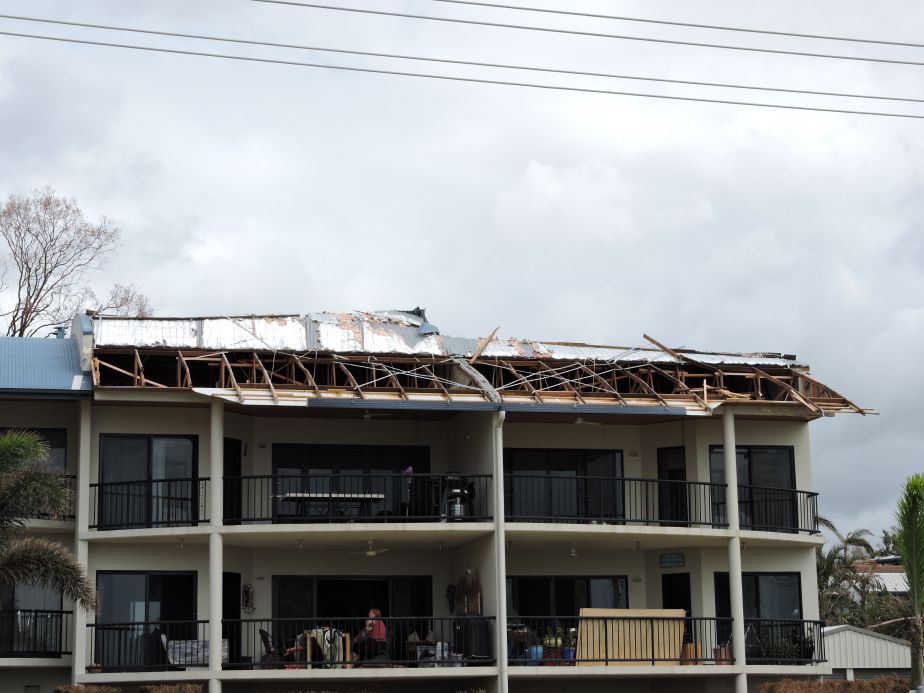Media Releases
‘No pets policy’ affected Cyclone Debbie evacuations

James Cook University researchers have found that most people in the path of Cyclone Debbie refused to be evacuated - many out of loyalty to their pets or because of a poor impression of evacuation centres.
Category 4 Severe Tropical Cyclone Debbie made landfall near Airlie Beach on the 28th of March this year. The approach of the storm provoked mass evacuations and its impact caused widespread damage.
Dr Yetta Gurtner and Dr Astrid Vachette from JCU’s Centre for Disaster Studies surveyed people in the cyclone impact zone a few days after the storm had passed.
Dr Gurtner said most people refused to be evacuated from their homes. “The most common reasons people gave for not evacuating were they would have to leave their pets behind, or because they had low opinions of the conditions in evacuation centres,” she said.
Dr Gurtner said communities need to develop household evacuation plans that identify alternative shelter options and those plans must include specific arrangements for the sheltering of pets.
She said that while people were aware of the cyclone and the threat it posed, they appeared to have an unrealistic view of what authorities could do to help them in an emergency.
“Some people just waited around for authorities to come directly to them and tell them what to do. Communities need to be better educated and prepared to be more independent, self‐reliant and resilient before, during and after a disaster.”
Dr Gurtner and Dr Vachette will be presenting their findings at the Tropical Cyclone Debbie Forum at the Queensland Fire and Emergency Service State Disaster Coordination Centre in Brisbane on Tuesday 6 June 2017.
Key findings
- Most people preferred to shelter at home irrespective of risk.
- The community has an unrealistic expectation of the role and responsibility of authorities, agencies and emergency response personnel in a hazard event.
- Communities need to be better educated and prepared to be more independent, self‐reliant and resilient before, during and after a disaster.
- Informants showed a clear awareness of cyclone hazards, yet a restricted understanding of personal exposure/risk.
- People were familiar with preparation recommendations, yet most were not adequately prepared.
- Understanding of evacuation procedures was limited.
- Social networks were valuable in all aspects of awareness, preparation, response and recovery.
Images here.
Dr Yetta Gurtner.
P: (07) 4781 5617
E:Yetta.gurtner@jcu.edu.au
Dr Astrid Vachette.
P: (07) 4781 4877
E:Astrid.vachette@jcu.edu.au
